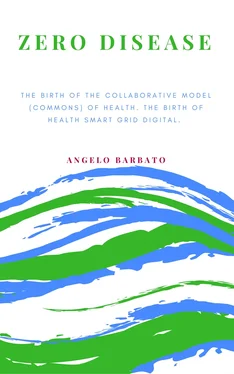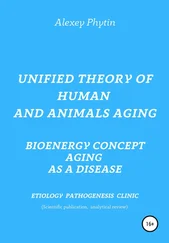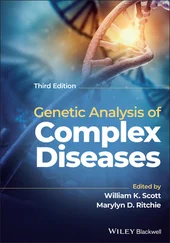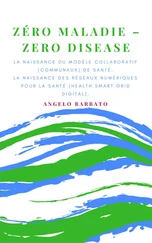Angelo Barbato - Zero Disease
Здесь есть возможность читать онлайн «Angelo Barbato - Zero Disease» — ознакомительный отрывок электронной книги совершенно бесплатно, а после прочтения отрывка купить полную версию. В некоторых случаях можно слушать аудио, скачать через торрент в формате fb2 и присутствует краткое содержание. ISBN: , Жанр: Медицина, Медицина, Здоровье, Спорт, на английском языке. Описание произведения, (предисловие) а так же отзывы посетителей доступны на портале библиотеки ЛибКат.
- Название:Zero Disease
- Автор:
- Жанр:
- Год:неизвестен
- ISBN:978-8-87-304045-3
- Рейтинг книги:5 / 5. Голосов: 1
-
Избранное:Добавить в избранное
- Отзывы:
-
Ваша оценка:
- 100
- 1
- 2
- 3
- 4
- 5
Zero Disease: краткое содержание, описание и аннотация
Предлагаем к чтению аннотацию, описание, краткое содержание или предисловие (зависит от того, что написал сам автор книги «Zero Disease»). Если вы не нашли необходимую информацию о книге — напишите в комментариях, мы постараемся отыскать её.
Zero Disease — читать онлайн ознакомительный отрывок
Ниже представлен текст книги, разбитый по страницам. Система сохранения места последней прочитанной страницы, позволяет с удобством читать онлайн бесплатно книгу «Zero Disease», без необходимости каждый раз заново искать на чём Вы остановились. Поставьте закладку, и сможете в любой момент перейти на страницу, на которой закончили чтение.
Интервал:
Закладка:
Precisely the "intelligent" characteristic must be highlighted under various aspects or features as the efficient distribution of electrical energy for its more rational use, minimizing any overloads and variations in voltage around its nominal value 6.
Digital smart grid is a concept which, carried from the power supply, will be increasingly developed in the computer network connections. This has implications not only for Wi-Fi, broadband and big data. It is needed to move towards the trend of digitizing the three major paradigms of the economy: energy, communications and logistics (including transport systems).
There are no longer virtual or natural boundaries facing the great global problems such as population growth, food resources, over-exploitation of land resources, pollution of the planet and consequently uncontrolled problems at the limit of survival , of space and of the biosphereâs balance. These represent problems towards which consciousness is growing, issues we can no longer postpone, or worse, ignore.
A new global and social consciousness is inevitably making its way, demanding a complete change of paradigms. Vertical and power relations will gradually give way to relations of cooperation and sharing of forces.
Empathy and assertiveness, keywords of sharing and collaboration, will integrate the necessarily narcissistic, closed and conservative communities of all sizes and places.
As masterfully described by Jeremy Rifkin, history shows that a shift in energy, communication and logistics represents the dawn of a substantial economic revolution in all societies of the world. Consequently, as always happens during great changes, it is crucial for the future of society to seize the opportunities of such shifts, renewing and adapting their inner world to a new global vision. At present, the history of man and of civilization has reached a global dimension.
The paradigmatic events of the third industrial revolution described by Jeremy Rifkin have produced the greatest evolutionary acceleration in human history. As always, it is up to man to know how to seize new opportunities. The faster man makes this happen, the deeper and more aware the willingness to change themselves will be.
The first big change is radical, the gradual transition from a self-centered individual awareness to an open and multifocal collective. In summary, the ability to combine oneself with others and with the surrounding world is needed. This three-dimensional view, which effectively defines the so-called biosphere consciousness is the new interior condition absolutely necessary to be able to rapidly take advantage of the great benefits that this revolutionary global process can generate.
Not knowing how to seize this great opportunity, or worse, not wanting to participate in the change can result in unfavorable social events, which are already perceivable, if not visible.
History is continually proposing this.
Individuals and companies are therefore becoming increasingly collaborative, more involved, more empathetic, more attentive to the world in which they live in. The change will impact our lives more rapidly the more we are active participants.
This will happen in the production of goods, but above all in the collective sphere of relations, so-called services. First and foremost, is health, where the value of empathy is one of the anchors of the modern conception of the doctor-patient relationship.
The doctor-patient relationship has always been the cornerstone and the centerpiece of the "cure" process in all its stages, from prevention to diagnosis to therapy.
In some national contexts, such liaison has gradually shifted towards the establishment of mathematical sterile space protocols of production chain in the Health "Companies", sometimes operated by speculative organizations. These companies are both public and private. Speculative, in this context, because the âenterprisesâ, rather than focusing on the "production of health", end up feeding themselves and their survival.
Why are the delivery systems for health care services continually reviewed? What is constantly changing? Why do public health systems tend towards privatization and not vice- versa? Why is an important profession such as health care more than any other at the centre of debates and controversies? Why is one of the most important services that every state should give priority to so different from country to country?
The evolution of society has gradually shifted its focus to the level of the hierarchy of needs, as has inevitably been the case also for one of the basic services organized for citizens in modern societies, "health protection".
Today, the close individual-environment connection is undeniable, seeing the correlations between environmental degradation and health risks. This awareness has been gradually triggering growing consciousness and the culture of prevention.
The environmental crisis, the crisis of health and the crisis of values are closely linked and interdependent. The system responds to the request for health with an increasing number of expensive and technologically sophisticated performances; trying to modify the natural history of "disease", which in itself already implies "lost healthâ. Neglecting, instead, primary prevention which is to be made both on the polluted and unhealthy environment around us, as well as on individuals, accompanied by an appropriate policy of information and health education in search of a more simple and sustainable lifestyle.
Ethical and social values are sometimes contrasted by economic value, hence the need to make the health system sustainable while ensuring conditions of equality and universality.
All countries in the world are committed to finding answers for the enhancement of its citizensâ health.
Various countries, principally the developed ones, have established health care management models essentially of two types: a predominantly public model named Beveridge after the Englishman who at the end of World War II brought public insurance coverage to the United Kingdom, the "National Health Service"; and the Bismarck model, which takes its name from the Prussian/German statesman who introduced the private health insurance system.
Different countries have tried, even with customizations, to adjust such organizational models to the ever-changing demand for health, in the variable environmental and economic contexts, in order to maximize their population's health.
In the 90âs, the World Health Organization altered the attention level of health protection systems, shifting attention from the treatment of diseases, to seeking the psychological well-being of individuals and the environmental determinants of health.
To organize health care, man began his fight against diseases that in the nineteenth century was focused on therapies against infectious diseases. Around 1850, the construction of the first pavilion hospitals began, which soon showed the potential of hosting and connecting specialized activities that were beginning to emerge. These were mostly surgical, as a result of the revolutionary scientific discoveries and practices of the birth era of the foundations for anesthesia, microbiology, antisepsis and asepsis, but also diagnostic laboratory support, followed by diagnostic radiology (X-ray, 1901 Nobel prize), to which electrocardiographic diagnostics 7would be added soon after (Einthoven, 1908).
In order to organize health care in addition to acute patient management and thus urgency/ emergency, you need an increasing ability to manage chronic illness through a holistic vision that includes active handling of the disease, more often chronic diseases to be centered on prevention.
In recent years the traditional and hierarchical health care model that is identified with hospital care has began to falter, not only due to the high cost of energy, technology and management but also because of the profound epidemiological changes in diseases. Traditionally, the cure of acute illnesses has reportedly developed a standby medicine in the top-down hospital context, a facility increasingly dedicated to users, emergency and to the treatment of high intensity and in need of advanced technologies. The hospital has become ineffective for the treatment of rising widespread chronic diseases in need of multidimensional interventions, also linked with social health.
Читать дальшеИнтервал:
Закладка:
Похожие книги на «Zero Disease»
Представляем Вашему вниманию похожие книги на «Zero Disease» списком для выбора. Мы отобрали схожую по названию и смыслу литературу в надежде предоставить читателям больше вариантов отыскать новые, интересные, ещё непрочитанные произведения.
Обсуждение, отзывы о книге «Zero Disease» и просто собственные мнения читателей. Оставьте ваши комментарии, напишите, что Вы думаете о произведении, его смысле или главных героях. Укажите что конкретно понравилось, а что нет, и почему Вы так считаете.












